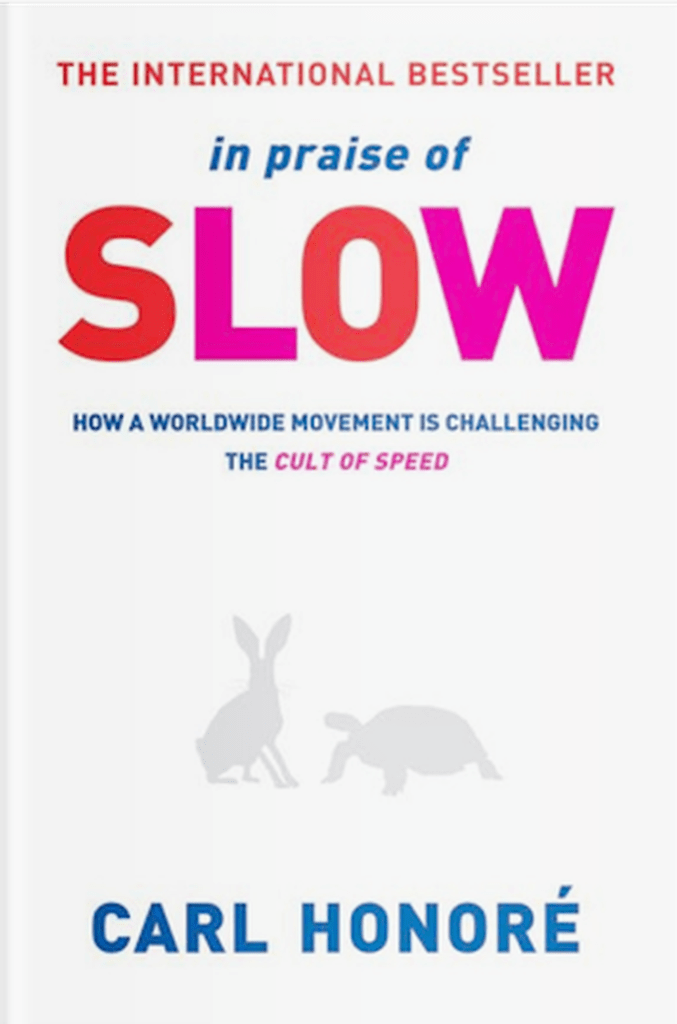Sharing my learnings from the book, In Praise of Slowness by Carl Honore
In Praise of Slowness by Carl Honore
The foundation text and handbook of the Slow Movement. Dissects our compulsion to hurry and chronicles a global trend toward putting on the brakes.

- Slow movement is a new movement transforming society, saying an empathetic NO to the continuous hurry we are constantly in
- people have always tracked time in some way or another. e.g., what do we usually do first thing in the morning? Check the time
- foe the greater part of human history, life & work moved slowly, limited by the speed of our bodies but since the industrial revolution, machine have enabled us to exceed such speed limits. In result, our lifestyle has become determined by schedules
- many people feel that a way of life dictated by clocks & machines is bound to dehumanize us
- our accelerated lifestyle has even found its way to our dinner tables. We’ve come to prefer food that’s readily available, regardless of health risks. Instead of sitting down to a meal with family & friends, we often eat alone quickly while doing something else. These have adverse effects in on our bodies: obesity rates are growing because we stuff our body with processed food, rapid eating doesn’t give our stomach enough time to tell the brain that we’re full
- slow movement encourages people to grow & cook their own food and to slowly savor every bite they take
- the pressure to keep up also has sped up our thinking. Experts think that the brain has 2 modes of thought: (1) fast thinking – rational, analytical & logical (2) slow thinking – intuitive & creative. Research has shown that people who are used to slow thinking are both less stressed & more creative in their everyday basus
- to nurture slow thinking, meditation is one way
- until recently, the lifestyle of speed invaded the cities and degraded the quality of medicine & education
- slow movement has been gaining influence in these areas of life:
- italian town Bra has written a 55-page manifesto outlining what they want for their slow city: things like cutting noise & traffic plus increasing pedestrian zones & green spaces
- more westerners are turning to complementary & alternative medicine where practitioners take the time to speak w/ patients & hear them out
- some schools in Finland already practices slow schooling by allowing kids to study at a manageable pace & take time to explore subjects
- we’re too stressed to enjoy life, but a lil slowness can go a long way in changing that


Leave a Reply